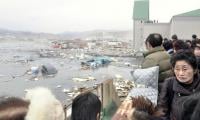ISLAMABAD: In a major blow to foreign investment in Pakistan, Century Steel Group — one of the largest Chinese giants — has warned that it will close down its operation and withdraw investment.
A letter written by the Century Steel Group CEO Li Chunjian to Prime Minister Shehbaz Sharif said they had decided to cease their business and withdraw investment from Pakistan due to several issues that could not be resolved by various government entities responsible for handling foreign direct investment in CPEC Rashakai Special Economic Zone in KP.
“This will be our last notice to the Government of Pakistan; if the above problems are not resolved immediately, we will start dismantling the plant from the RSEZ,” the letter said.
When contacted, a top government official told The News Friday night that the prime minister had constituted a committee led by Aleem Khan to resolve all grievances of the company.
The committee comprises members from the federal and KP governments.
The company said they came to Pakistan with big dreams and planned to set up the largest steel mill at the first CPEC - Rashakai SEZ in KP province in three phases.
The investment of the first phase of the project was $82 million out of which over $30 million investment was already on the ground with a planned annual output of 500,000 ton steel products.
The remaining two phases would also bring over $200 million investment in Pakistan for downstream steel products production by transferring state-of-the-art steel technology from China to Pakistan.
The ultimate steel products capacity would reach 1.5 million tons within five years.
“We aimed to contribute to the GDP of Pakistan and also to create thousands of jobs as well as build exports of steel products to the regional markets. However, due to the following unresolved issues for over five years, we have finally decided to exit from Pakistan and report this matter to the Chinese government/embassy and the international press as a last resort.
“We have been waiting for the last five years at RSEZ and maintenance of our staff and expenses has caused us big losses to the tune of $7.5 million.
Plot purchase agreement couldn’t be signed with KPEZMC despite our various exchanges and meetings and long-time has passed.
Extremely high land prices at RSEZ are impacting our capital investment costs. Power supply, which is the most critical matter for any steel mill operation, couldn’t be arranged by the RSEZDOC due to their pending issues with Nepra for distribution license.
We required 100MW stable and cost-effective power which remains elusive despite long-time has passed.
We are now forced to look for arranging our own power from other means like investment into solar power plant nearby RSEZ increasing the overall capital investment away from our core steel business.
The SEZ policy is extremely weak with no incentives for FDI despite several government and team changes in the bureaucracy. Continuous rise in the price of power has made the business un-viable and we foresee further increase in power prices.
Taxes applied on steel industry are adding insult to injury, as two large scale steel mills in Pakistan have already shut down (Amreli Steels/Agha Steels) after failing to sustain the steel industry taxation.
Despite incentives and waiver on import duties/taxes given to the small steel mills at FATA/PATA, their substandard steel production is spoiling the market in Pakistan, leaving large scale mills out of business.
There is no strict implementation of quality steel production in Pakistan and the responsible departments are not bothered about the sub-standard steel being sold across Pakistan.
The management and security of CPEC RSEZ instead of helping has created a burden for us forcing us to bear the security personnel expenses and uncalled-for demands.
Free movement of our personnel for day to day needs is not possible and even our sick employees cannot go and seek medical attention outside the RSEZ.
Some of our in-house employees were put on the black list by the agencies for reasons unknown to us despite our requests for resolving this matter.
Overall, the demand for steel has contracted in Pakistan due to several factors including high inflation, currency instability and economic downturn.
The representational image shows a gavel in a courtroom. — Unsplash/FilePESHAWAR: An accountability court on...
The building of the Board of Intermediate and Secondary Education Abbottabad. —...
The representational image shows an Edhi ambulance. — APP/FileDAGGAR: Seven members of a family, including four...
Chairperson of the Senate Standing Committee on Federal Education and Professional Training, Senator Bushra Anjum Butt...
Jamaat-e-Islami Ameer Hafiz Naeemur Rehman. — APP/FileRAWALPINDI: Jamaat-e-Islami Ameer Hafiz Naeemur Rehman has...
President Asif Ali Zardari exchanges views with Ambassador of the Kingdom of Saudi Arabia to Pakistan, Nawaf bin Said...







